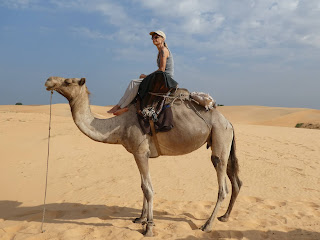I have to return to the black-white relations topic, inspired by the recent outcry over racism in British cricket, as I find this so interesting when considered from the African perspective.
I’m thinking of the case where an old picture has come to
light of a white cricketer in blackface, where he was apparently playing homage
to the (then) recently deceased black artist, Tupac Shakur. It reminded me of an incident maybe ten years
ago, when an Australian politician got into hot water over a blackface incident,
at which time I innocently mentioned the case to a Cameroonian colleague. To my surprise, he was confused by the
incident. “What’s wrong with that?” he
asked. I tried to explain, but he found
it very strange, telling me about a popular Cameroonian comedian of the time
who was known for making himself up as a white person, and then acting out
doing typically local jobs which would not normally ever be done in Cameroon by
a white person. I recall he gave one
example of street vendors. My colleague
asked me if I found that offensive – which of course I didn’t. Perhaps an example of white privilege (a term
which I don’t think existed at that time) as you don’t get easily offended by
mickey-taking when you are in the dominant group.
So this time around, I asked a Senegalese friend – an
educated and well-travelled Senegalese friend – what he thought about what this
cricketer had done. Like my Cameroonian
colleague, he was confused, telling me that he and other Senegalese would
consider it an honour if a white person made themselves up (clothing but also
make-up) as Senegalese in homage to someone who had died. I asked how he would feel if it were done in
a more light-hearted context, rather than as homage to someone deceased, and he
still said that he and other Senegalese would view it as something positive,
showing recognition and appreciation of Senegalese/Africans. Indeed when I walk in the street wearing
anything local, such as outfits in African wax fabric, I get appreciative
comments from random strangers – it is never seen as cultural appropriation but
rather as a mark of appreciation and respect.
I suppose the negative reactions to such things usually
start in the US, where the history of black-white relations is so bad that any
instance of white folk interacting with the black culture is viewed with
suspicion. Not that black-white
relations in Africa have been exactly balanced and fair, but perhaps being on
‘home turf’ makes a difference in some way.
Indeed, it still astonishes me how positively white people and white
culture are seen here. On my way back
from Lompoul last weekend, as our minibus drove through some small towns and
villages, several people looked up and noticed that there were some white
people in the vehicle – “Toubab!” (the local word for white person) one older
lady shouted excitedly as she waved to me.
I don’t know that I’ll ever fully understand that reaction, but one
thing I do know is that when I eventually return ‘home’ to the UK, I shall have
to be careful as to what I say and do in respect of the minefield of
black-white interactions.





